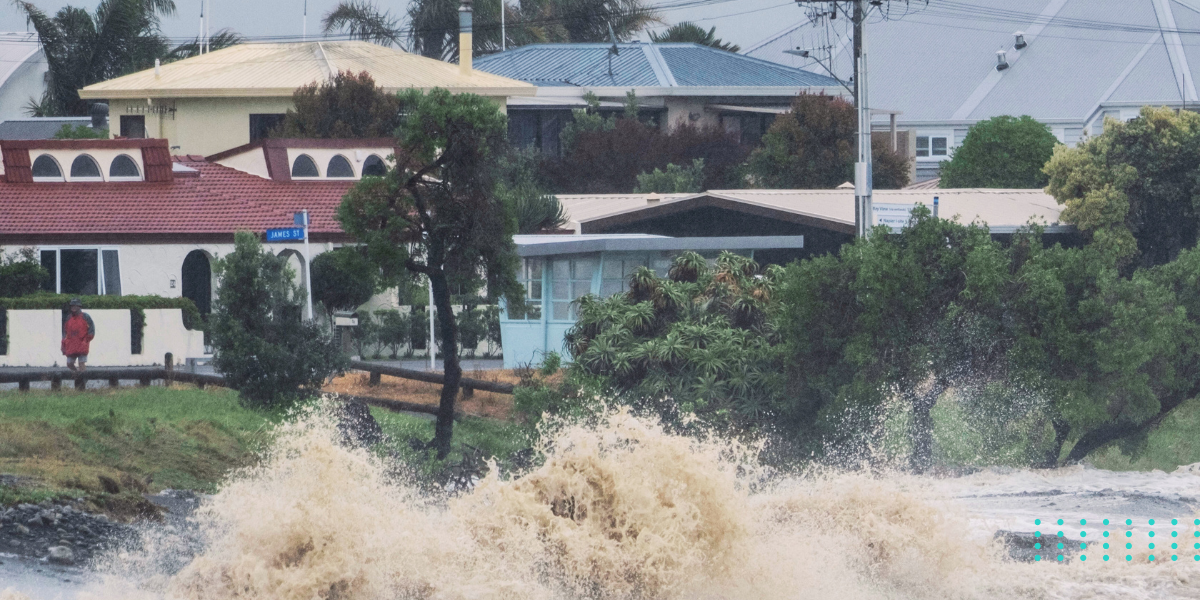
Cyber Threats on the Rise: Healthcare & Finance Sectors Hit Hardest
March 18, 2025With many communities in southeast Queensland and northern New South Wales severely impacted by Tropical Cyclone Alfred, the Insurance Council of Australia (ICA) officially declared an ‘Insurance Catastrophe’ on the 9th of March 2025.
It has been widely reported that more than 220,000 properties lost power as a result of the severe wind and rain, and the total damage bill continues to rise. The ICA also reported that more than 53,000 insurance claims had been lodged as at the 14th of March 2025, marking a significant increase from the 22,000 insurance claims reported to have been lodged only 3 days earlier, as at the 11th of March 2025.
The declaration of an ‘Insurance Catastrophe’ by the ICA serves to escalate the insurance industry’s response for policyholders impacted by Tropical Cyclone Alfred and in so doing, help speed up assistance at a time where safety and wellbeing is a priority.
Under the declaration claims will be handled according to the below:
• Claims from affected policyholders will be given priority by insurers.
• Claims will be triaged to direct urgent assistance to the worst-impacted property owners.
• ICA representatives are mobilised to work with local agencies and services and affected policyholders as soon as emergency services say it is safe to do so.
• Insurers mobilise disaster response specialists to assist affected customers with claims and assessments as soon as emergency services say it is safe to do so.
• An industry taskforce is established to identify and address issues arising from this catastrophe.
The ICA’s CEO, Andrew Hall, has emphasised that “Insurers’ top priority is community safety. If you’re affected by ex-TC Alfred, stay clear of fallen powerlines and floodwaters, and avoid any activities that could put you at risk.”
Hall also highlighted that the ‘Insurance Catastrophe’ was declared “to activate services and support for affected homeowners and businesses and reassure them that their insurer is there to help.”
With the majority of claims lodged in NSW and QLD to date being for people’s homes, the importance of understanding how to approach a claim and gather the right evidence for it to be lodged successfully is clear.
What to do in the immediate aftermath:
• Safety is the priority – don’t do anything that puts anyone at risk.
• Be mindful of electrical hazards and fallen powerlines. Never approach or attempt to move fallen wires, even if they appear inactive. If water has entered your property, don’t turn on your electricity until it has been inspected by an electrician.
• Contact your insurance company (or if you purchase insurance via a broker, contact your broker) as soon as possible to lodge a claim and seek guidance on the claims process.
• Property owners who have sustained roof damage should advise their insurer.
• Do not drive your vehicle if it has suffered water damage.
How should policyholders approach the clean-up process?
If you’ve been given the go-ahead to return to your property, you can clean up if it’s safe to do so but check out these tips first.
• Remain mindful of safety
• Before you start your cleanup, document the damage with photos and videos to support an insurance claim.
• Take photos before removing any water damaged or soaked items that may pose a health risk.
• Make a list of damaged items, including the brand, model and serial number if you can.
• Don’t throw away items that could be repaired unless they pose a health risk.
• Speak to your insurer before you attempt or authorise any building work, including emergency repairs, and ask for the insurer’s permission in writing, as unauthorised work may not be covered by your policy.
If you are looking for more information about the claims process, resources are available at: www.insurancecouncil.com.au/DisasterHelp or speak to one of our advisers contact us.
This communication is for general information purposes only and does not take into account any specific individual’s or business’s objectives, financial situation or needs. Before acting on any of the information provided herein, you should consider how it applies to your specific circumstances and contact an insurance broker and / or other appropriately qualified professional to discuss. Any advice given on what is or is not covered under any specific insurance policies is general only. You should always refer to the relevant PDS and policy wording to determine whether the coverage is appropriate for your individual circumstances.
Author: Sophie Cooke
References:
Insurance Council of Australia News Release: Sunday, 9 March 2025 https://insurancecouncil.com.au/resource/insurance-catastrophe-declared-for-tropical-cyclone-alfred/
Insurance Council of Australia News Release: Monday, 10 March 2025 https://insurancecouncil.com.au/resource/ex-tropical-cyclone-alfred-insurance-update/
Please contact one of our advisers if you would like further information on this article.





